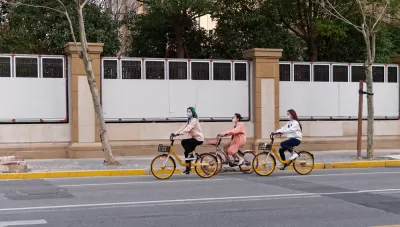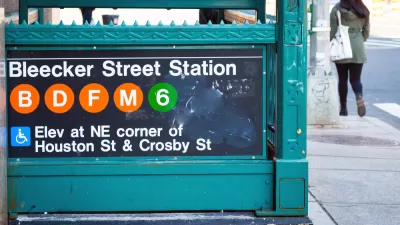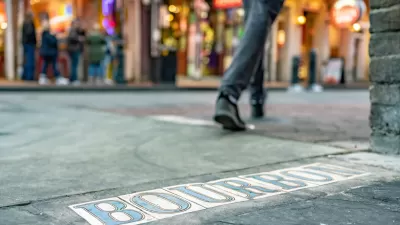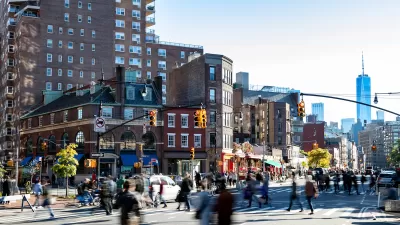Access (the ease of reaching desired destinations) is a key factor in transport, sustainability, and urban planning. This new study applies multimodal accessibility analysis to 4 modes in 117 cities in 6 countries, illustrated graphically.

From the abstract for new research published in NPJ Urban Sustainability on May 27 and available for open access:
Access (the ease of reaching valued destinations) underpins land use and transport infrastructure planning. The importance of access in transport, sustainability, and urban economics is increasingly recognized. In particular, access provides a universal unit of measurement to examine cities for the efficiency of transport and land use systems. This paper examines the relationship between population-weighted access and metropolitan population in global metropolitan areas (cities) using 30-minute cumulative access to jobs for 4 different modes of transport; 117 cities from 16 countries and 6 continents are included. The results indicate that sprawling development with intensive road network in American cities produces modest automobile access relative to their sizes, but American cities lag behind globally in transit and walking access; Australian and Canadian cities have lower automobile access, but better transit access than American cities; combining compact development with an intensive network produces the highest access in Chinese and European cities for their sizes. Hence density and mobility co-produce better access. This study finds access to jobs increases with populations sublinearly, so doubling metropolitan population results in a less than double access to jobs. The relationship between population and access characterizes regions, countries and cities, and significant similarities exist between cities from the same country.

FULL STORY: Urban Access Across the Globe: An International Comparison of Different Transport Modes

Planetizen Federal Action Tracker
A weekly monitor of how Trump’s orders and actions are impacting planners and planning in America.

Maui's Vacation Rental Debate Turns Ugly
Verbal attacks, misinformation campaigns and fistfights plague a high-stakes debate to convert thousands of vacation rentals into long-term housing.

San Francisco Suspends Traffic Calming Amidst Record Deaths
Citing “a challenging fiscal landscape,” the city will cease the program on the heels of 42 traffic deaths, including 24 pedestrians.

Defunct Pittsburgh Power Plant to Become Residential Tower
A decommissioned steam heat plant will be redeveloped into almost 100 affordable housing units.

Trump Prompts Restructuring of Transportation Research Board in “Unprecedented Overreach”
The TRB has eliminated more than half of its committees including those focused on climate, equity, and cities.

Amtrak Rolls Out New Orleans to Alabama “Mardi Gras” Train
The new service will operate morning and evening departures between Mobile and New Orleans.
Urban Design for Planners 1: Software Tools
This six-course series explores essential urban design concepts using open source software and equips planners with the tools they need to participate fully in the urban design process.
Planning for Universal Design
Learn the tools for implementing Universal Design in planning regulations.
Heyer Gruel & Associates PA
JM Goldson LLC
Custer County Colorado
City of Camden Redevelopment Agency
City of Astoria
Transportation Research & Education Center (TREC) at Portland State University
Jefferson Parish Government
Camden Redevelopment Agency
City of Claremont





























